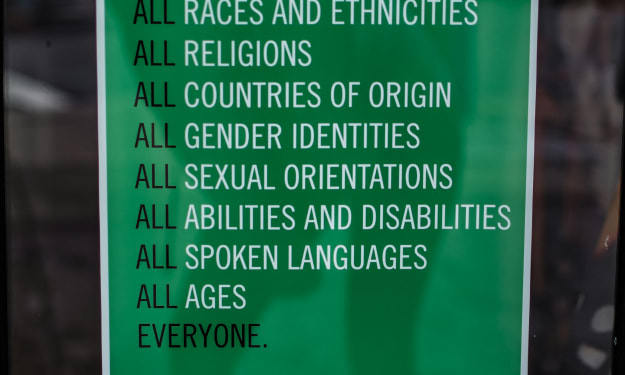History of English language
Learn the English language

The history of the English language is a complex journey spanning over a millennium, influenced by diverse cultures, conquests, and global interactions. Here is an overview covering key periods in the evolution of the English language:
**1. Old English (450-1150 CE):**
Old English, also known as Anglo-Saxon, originated from the Germanic languages brought to Britain by the Anglo-Saxons. It underwent significant changes due to interactions with Celtic languages and the Viking invasions. Beowulf, an epic poem, is one of the surviving literary works from this era.
**2. Norse Influence (800-1050 CE):**
The Viking invasions introduced Norse words and phrases into Old English, leaving a lasting impact on the language. Many everyday words, including "sky" and "leg," have Norse origins.
**3. Norman Conquest and Middle English (1066-1500 CE):**
The Norman Conquest of 1066 brought French-speaking Normans to England. As a result, Middle English emerged as a fusion of Old English and Norman French. The linguistic hierarchy reflected social distinctions, with Latin used in scholarly and religious contexts. Geoffrey Chaucer's "Canterbury Tales" is a famous work from this period.
**4. Renaissance and Early Modern English (1500-1700 CE):**
The Renaissance period witnessed a revival of interest in classical learning, leading to an influx of Latin and Greek words into English. Technological advancements, exploration, and trade introduced words like "tobacco" and "potato." The Great Vowel Shift also characterized this era, altering the pronunciation of many words.
**5. The Influence of Printing (1476 CE onward):**
The printing press, introduced by William Caxton in 1476, played a pivotal role in standardizing English. The availability of printed books accelerated the dissemination of the language, contributing to linguistic uniformity.
**6. Early Modern English Literature (1500-1700 CE):**
The Elizabethan era saw a flourishing of English literature with the works of William Shakespeare, Christopher Marlowe, and others. The King James Bible, published in 1611, greatly influenced the standardization of English.
**7. Colonization and Global Expansion (1600-1800 CE):**
English colonization, particularly in North America, the Caribbean, Africa, Asia, and the Pacific, led to the assimilation of words from various languages into English. This diversity enriched the language, and English became a global lingua franca.
**8. The Industrial Revolution and Technological Advancements (18th-19th centuries):**
The Industrial Revolution brought about technological advancements, introducing new vocabulary related to industry and machinery. The Oxford English Dictionary (OED), initiated in 1857, aimed to catalog the entire English lexicon.
**9. 20th Century and Modern English:**
The 20th century witnessed rapid changes in the English language. American English and British English diverged in spelling and vocabulary. World War II brought new terminologies, and post-war globalization increased the influence of English as a global language.
**10. Digital Age and Global Dominance (Late 20th century - Present):**
The advent of the internet and digital communication accelerated the global spread of English. Technical jargon, abbreviations, and new words emerged. English became the primary language of international business, diplomacy, science, and technology.
**11. English Dialects and Regional Variations:**
Throughout its history, English has developed numerous dialects and regional variations. The United Kingdom alone has diverse accents and linguistic nuances, ranging from the Scottish Highlands to the streets of London. Similarly, American English exhibits variations across regions, with distinctions in pronunciation, vocabulary, and even grammar.
**12. Modern English Literature and Cultural Impact:**
The 20th and 21st centuries have seen the continued flourishing of English literature with iconic figures like T.S. Eliot, Virginia Woolf, J.K. Rowling, and many others. English-language literature has had a profound impact on global culture, influencing art, cinema, and popular culture worldwide.
**13. English as a Global Lingua Franca:**
English's rise as a global lingua franca is unprecedented. It serves as a common language for communication among speakers of different native languages. This phenomenon is particularly evident in international business, academia, diplomacy, and aviation, solidifying English as a key tool for global interaction.
**14. English in Science and Technology:**
The dominance of English in scientific and technological discourse is unparalleled. Research papers, conferences, and academic discussions predominantly occur in English. Many scientific terms and technological innovations are introduced to the world using English terminology.
**15. English in Popular Media and Entertainment:**
The entertainment industry, especially Hollywood, has played a crucial role in spreading English globally. English-language movies, television shows, and music are widely consumed across the world, contributing to the diffusion of English vocabulary and phrases.
**16. Globalization and English Teaching Industry:**
The demand for learning English as a second language has surged due to globalization. English language teaching has become a major industry, with millions of people worldwide learning English for academic, professional, or personal reasons.
**17. Impact of Social Media and Digital Communication:**
The rise of social media platforms has further accelerated changes in English usage. Shortened forms, emojis, and internet slang have become integrated into everyday communication. Social media has also facilitated the rapid dissemination of language trends and neologisms.
**18. English in the 21st Century Workplace:**
Proficiency in English is often a prerequisite in the modern job market. Many multinational companies use English as their primary language for internal communication. The ability to communicate effectively in English is considered a valuable skill in the globalized workforce.
**19. English Language Evolution in the Future:**
As English continues to evolve, it faces challenges and opportunities. The influence of technology, ongoing globalization, and cultural shifts will likely contribute to further changes in vocabulary, grammar, and communication norms.
**Conclusion:**
The English language's journey from its early Germanic roots to its current global status is a testament to its adaptability and resilience. English has transcended geographical and cultural boundaries, shaping and being shaped by the diverse communities that use it. Its future evolution will undoubtedly be influenced by the dynamic forces of technology, globalization, and cultural exchange.






Comments
There are no comments for this story
Be the first to respond and start the conversation.